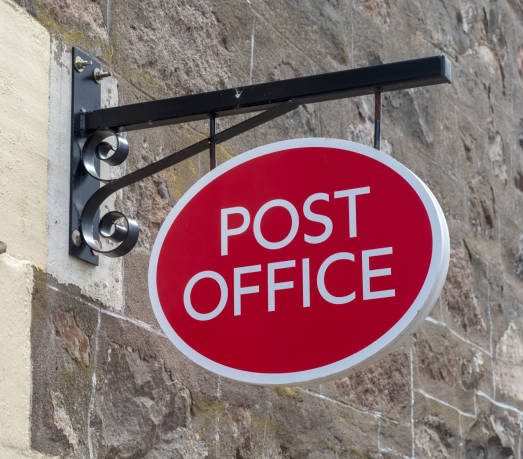Category: News
Therium has completed the first close of its new £300m fund dedicated to litigation, the funder has announced.
Therium turned to Simmons & Simmons partner Matthew Pitman, Ogier and Seward & Kissel on the establishment on the new fund. The first close is at £200m with a further £100m expected before final close, in what is Therium’s largest fund.
Co-founder and chief investment officer Neil Purslow said: “Demand for litigation funding from Therium since we launched our last major fund has exceeded our expectations and we have transformed the scale of our operations over the past few years in order to meet that demand.
“Over that period, Therium has enjoyed an unprecedented scale of opportunity in funding single cases in all of our markets. At the same time, we have innovated with portfolio products for law firms and corporates and with the acquisition of claims, judgments and awards.
“Our new investor base provides the platform that we need to be able to deliver all of these products to our clients, and we are excited to be partnering with them in this rapidly developing space.”
Therium said it would use the new funds to continue to invest in litigation in the financial services, energy and mining and TMT sectors. It added that the new fund is expected to be deployed within two years.
The litigation funder has bankrolled a number of significant class actions, including one launched by 45,000 Volkswagen (VW) car owners against the manfucturer over its emissions scandal, and the £3.9bn compensation claim against a number of European truck manufacturers who were found by the European Commission to have engaged in illegal price fixing for 14 years.
It is also funding a £300m claim lodged by retailers including Nando’s, the Co-operative Group, Pret A Manger and Harvey Nichols against Mastercard over its credit card fees. The group of well-known UK retailers argue that the credit card giant breached a number of EU and UK regulations when it set “unlawful and anti-competitive” Mastercard rules and fees by itself.
Most recently, Therium announced it would contribute £1.5m to Noel Edmonds’ £60m claim against Lloyds Bank relating to the fraud that took place at Halifax Bank of Scotland (HBOS).
Edmonds is suing Lloyds, which merged with HBOS in 2009, for up to £60m – thought to have been revised down from £300m – in damages, after his business, Unique Group, collapsed following alleged fraud by HBOS bankers in Reading.
Earlier this year, rival funder Burford Capital said it was considering a potential bond issue following its $1.3bn investment in legal services during the past year.
The litigation funder invested more than triple its 2016 level last year. A notable case it has taken on is the cartel damages claim arising from the European Commission’s decision to issue a €2.9bn fine on manufacturers Daimler, Volvo/Renault, Iveco, MAN and DAF for price fixing.
Read the full article on thelawyer.com
One reason the anger from the financial crisis is still so widespread is that no banker went to jail and the public never had its day in court. Thus the widespread feeling that although the country has suffered a decade of stunted growth, the bankers responsible for the disaster have got away with it.
The regulatory bodies, the Financial Conduct Authority and its predecessor the Financial Services Authority could not find specific offences which they thought would support a successful prosecution.
Then the emphasis moved to civil actions brought by disgruntled shareholders and for a while this year it looked as though the Royal Bank of Scotland’s former chief executive Fred Goodwin, would be cross-examined as part of a shareholder action brought against the bank.
That never happened either, unfortunately, because RBS settled just before the trial was due to start.
However, something similar might happen this month with the directors of Lloyds in the frame. For some years now, the London law firm Harcus Sinclair has been preparing an action by shareholders against the then key directors of Lloyds bank over how it handled its acquisition of Halifax Bank of Scotland.
The trial should begin in the High Court next Wednesday. Having been battered over its disgraceful foot-dragging in dealing with the infamous fraud in its Reading branch, Lloyds risks getting another judicial mauling.
Assuming it goes ahead, shareholders will at last see some former chief staff in the dock: sometime chairman Sir Victor Blank, ex-chief executive Eric Daniels, ex-finance chief Tim Tookey, Truett Tate, who was head of wholesale and international banking, Archie Kane, former director of insurance and investments and Helen Weir ex-director of retail banking are all scheduled to appear and be cross-examined.
The central thrust of the shareholders’ case — and demand for compensation — is that the Lloyds board withheld material financial information about HBOS’s parlous financial condition while asking shareholders to approve the rescue deal. The action postulates that had shareholders known all the facts, they might have rejected the deal or at least demanded Lloyds pay a much lower price to buy. Either would have reduced the subsequent damage done to Lloyds’ own share price by the deal. Lloyds on behalf of its then directors disagrees.
You can really never know how these things will turn out in court but the shareholders have some useful ammunition on their side, not least contemporary submissions made to the Competition and Markets Authority. It turns out that, while Lloyds was telling shareholders the deal would be all right on the night, it was telling the CMA that it would be a calamity if the deal were blocked because HBOS would collapse.
It was in the public interest to allow the deal to proceed because if HBOS failed the Bank of England would lose £25 billion of emergency funding already injected and Lloyds would lose £6.5 billion of the £11 billion which it had also quietly made available. Neither these payments — nor an additional £10 billion borrowed by HBOS from the US Federal Reserve — appear to have been made known to shareholders at the time.
Lloyds says it disclosed everything it was legally required to disclose and might also reasonably argue that the end justified the means — that the board did the right thing in the public interest because an HBOS collapse might have brought down the entire UK banking system. That, however, would be an argument for HBOS to be rescued by the government with the cost borne by all taxpayers — not for HBOS to be rescued by Lloyds with the entire cost falling only on its hapless shareholders.
A company director’s duty is to act in the interests of shareholders not to help out the government, and one of the functions of regulation in its various forms is to ensure that this is indeed what happens.
Thus one of the interesting things which might also emerge from the trial is the extent to which the FSA, FCA, the Treasury, and indeed, Gordon Brown, who was prime minister at the time, acquiesced in (or resisted) a strategy which required Lloyds shareholders to be sacrificed for the greater good.
It should again be said that Lloyds throughout has argued that there is no substantive case to answer.
This stance probably informed their tactics which — since the case became public knowledge — seem to focus on running their legal costs up to astronomic levels (well over £20 million), in the belief that the escalating bill would force the other side to blink first and back off. Their small shareholders would be taught not to play poker with the big boys.
In earlier years this might have worked — the 6000 shareholder claimants were never going to have pockets deep enough to match a bank — but these days help of a kind is at hand.
The costs on the shareholder side — which are also in the region of £20 million and will rise a lot more as the trial unfolds — are being met by Therium Capital Management. This is one of those hedge funds which finances litigation in return for a 30% cut of the winnings, or three times the costs incurred, whichever is the bigger. It seems not to have dawned on Lloyds that the sides are much more evenly matched financially than you would expect.
With the court case imminent, Lloyds is now in a difficult position. Its image is already tarnished by the Reading affair. Even if it wins this case, victory will only come after a repeat airing of the events it would rather forget from 10 years ago which only bring further reputational damage to the bank. If it loses it will call into question its judgment in allowing the case to come to trial in the first place. And if it settles on the steps of the court it will find the cost significantly higher that it would otherwise have been because the hedge fund and lawyers will have to be paid off first.
It is often said that public company directors live in a bubble separated from the real world and remain unaware of what the public thinks of them and expects of them. That is certainly how Lloyds looks.
New technology is likely to be one of the most significant factors driving the rise of the litigation funding market over the next five years, industry experts say.
The increasing prominence of third-party funding has been accompanied by a rise in the technology and data tools that have the ability to predict, or at least indicate, the outcome of cases.
In May this year a machine learning study led by Daniel Katz, a law professor at the Illinois Institute of Technology in Chicago, confirmed that it is possible to use historic data to predict, with a high degree of accuracy, the future decisions of the US Supreme Court.
Katz’ study used the Supreme Court Database, which has case data stretching back to 1791, to create an algorithm designed to predict any justice’s vote. The model predicted more than 240,000 justice votes and 28,000 cases outcomes over nearly two centuries (1816-2015) with 70.2 per cent accuracy at the case outcome level and 71.9 per cent at the justice vote level.
A growing number of litigation funders say they are confident that new technology such as this will ultimately help them mitigate the gamble that is litigation and increase the likelihood that they will back future cases.
John Byrne, co-founder of Therium Capital Management, which has helped launch legal proceedings against Volkswagen and Bosch in the Nertherlands, said he believed the use of external funding would become much more widespread as funders learn to minimise uncertainty through the use of technology.
Craig Arnott at Burford Capital added that the key benefit of artificial intelligence (AI) is that it augments what remains a fundamentally judgement-based business. However, he stressed that the days when a robot could replace a lawyer remain far off in the future.
“At the scale of commercial litigation at which Burford invests, the business of litigation finance depends on specialised expertise and human judgement, not algorithms, and indeed this insight and experience are highly valued by our clients and the firms with which we work,” Arnott added.
“Prediction is fantastic but we are not there yet,” echoed Byrne. “It is a least five years away, but what we do have now is probability.”
This year’s The Lawyer’s Global Litigation 50 report, produced in association with FTI Consulting and published next week, focuses on the inexorable rise of technology across all stages of the litigation process.
It analyses in detail how the world’s leading law firms are utilising new technology to deliver services to clients. It also reveals how several firms are already exploring ways of using historic data to predict the outcomes of cases or provide clarity and predictability of bills.
Additional reporting by Alexandra Rogers
Read the full article on thelawyer.com
The class action against Royal Bank of Scotland that recently hit the headlines was an interesting case for investors in more ways than one.
As well as shining a spotlight on the bank’s dealings with shareholders before its taxpayer bailout, there is another reason why investors watched with interest as it finally drew to a close last month.
It was one of the highest profile cases yet to be funded through third party commercial litigation funding. This emerging asset class is rapidly gaining traction, and investors and their advisers are increasingly keen to understand the dynamics behind it and the opportunity it represents.
A growing market
Commercial litigation funding is where a third party provides the financial resources to assist a claimant with expensive commercial litigation or arbitration cases in return for an agreed share of the proceeds of any successful claim.
This can range from international corporate disputes to shareholder class actions to smaller claims involving tax, trusts, intellectual property, competition, professional negligence or insurance, and more.
Crucially, commercial litigation funding should not be labelled as ‘ambulance chasing’ – funders will not usually invest in cases relating to areas such as personal injury or divorce.
It is a growing market with significant potential, not least because there is a clear need. The costs of pursuing cases can be prohibitive and uncertain, which often deters claimants from pursuing meritorious claims.
At the same time, law firms are not always able to take on cases on a conditional fee arrangement basis. As a result, litigation funding for UK and international cases is becoming more mainstream and London is now well-established as a global centre for legal dispute resolution. Some estimates put the size of the market at around $3.5 billion (£2.7 billion), a tenfold increase since 2009.
A key reason for its popularity is that it is an uncorrelated asset. Cases are resolved by the courts, irrespective of what is happening to asset prices in the wider economy.
Its ability to reduce overall portfolio risk while boosting returns, decreasing exposure to public market volatility and providing insulation against wider economic factors, which could impact other assets, is a major attraction.
Another compelling factor is that potential money multiple returns are similar to private equity, but are expected to be generated within a shorter timeframe.
Although the lifespan of a portfolio may be several years, the investment horizon for each case can vary greatly; once several cases within a portfolio are concluded, periodic distributions may become available.
International arbitration cases may take several years, but other types of cases can take only weeks or months, and claims frequently settle quite quickly after funding has been received. Funding can be provided at any point – even mid-trial.
A handful of key players
The market is maturing, with a handful of key players dominating in the UK, making it hard for new entrants to gain a foothold. Among them are Therium Capital Management – which is funding major shareholder actions against Lloyds and VW later this year – and Burford, which is listed.
Approaches vary, with some funders focusing mainly on high end international claims and others making a volume play, specialising in smaller cases. Funders may also differ in the types of cases they take on. Other players in the market include Harbour and Vannin Capital.
The fact that most of these leading market participants are private funds poses a challenge for individual investors, family offices and niche institutions looking to access the asset class. There is a huge amount of institutional interest now, which means smaller investors often get crowded out.
Their only options are to invest in a quoted commercial litigation funder (of which there are currently very few), but this means exposure to markets, undermining the uncorrelated nature of the asset. Or they will need to access an existing manager direct, as our clients have been able to do collectively, via a co-investment relationship we have established with Therium.
What to look for
Assuming investors can get access, what should they look for in their due diligence process? Essentially, commercial litigation funders should:
- Have well-established relationships with law firms
Law firms are the source of case flow. They are keen to ensure that cases can be pursued and their costs are met, so litigation funders’ professional conduct, ability to deliver and speed to fund are therefore often just as important as terms
- Be able to demonstrate specific expertise and a robust track record
In this highly specialised area, expertise is everything. This kind of investment should only be undertaken by a dedicated commercial litigation funder. Understanding the risks and conducting thorough case due diligence is vital to success.
- Be capable of building a diverse portfolio of cases
Cases have a roughly 50/50 success rate at trial, though a proportion will settle early, so a diverse portfolio is essential. Funders need a robust pipeline of prospects from which to select the strongest cases.
Commercial litigation funding provides investors with exposure to a non-cyclical, alternative asset, unrelated to stock market movements or economic developments, which can deliver attractive risk-adjusted returns.
For high net worth investors, the main challenge is gaining access via high quality market participants, as availability becomes more limited with growing demand. For those who can find a route in, the rewards – both financial and in terms of enhanced portfolio diversification – should be well worth it.
Claire Madden is a co-founder and managing partner at private equity and specialist funding business Connection Capital.
Read the full article on citywire.com
Therium Group Holdings Limited, a leading global provider of litigation finance globally with over $300 million in committed capital, is launching operations in Germany with the incorporation of Therium Deutschland GmbH, headquartered in Duesseldorf. Therium Group Holdings is one of the largest and most established litigation financing firms in the world.
Therium has identified a substantial market for litigation funding in Germany, driven by the increasing number of corporate and commercial legal disputes within a regulatory environment that has become more complex over the past few years. Litigation funding allows individuals and companies to take on litigation and arbitration cases that they might not otherwise be able to afford, and/or to hedge the costs and risks involved in such matters. Therium pays for all of the costs, including adverse costs in the event that the case is lost, and only receives payment if the case is won.
Therium sees a particular demand in Germany for funding litigation across financial services, securities disputes, cartel damages situations, insolvencies, post M&A matters and shareholder disagreements, in particular arising out of joint ventures. The firm is already engaged in Germany and has financed various significant cases, including sophisticated legal proceedings for the remuneration of infrastructure construction work against a foreign sovereign state pleading state immunity and a securities litigation against a major German bank. In addition, Therium in London is funding the first UK claim against Volkswagen for the emissions scandal.
Dr. Christoph Kuzaj is the Managing Director of Therium Deutschland GmbH and has more than 20 years’ experience in corporate and capital markets law, and complex corporate litigation. His litigation practice includes disputes arising out of private and public M&A-transactions, such as defensive actions in takeovers, and corporate special situations. Christoph is admitted to the German Bar Association and holds a degree in law and a Juris Doctor, both with distinction. He is supported by a team of corporate and tax lawyers, all with significant litigation experience.
John Byrne, Co-Founder and CEO of Therium, said: “We are delighted to be the first commercial litigation finance business to open an office in Germany. Christoph is a highly regarded corporate and litigation lawyer who is praised by his clients for his creativity and commercial approach. We are very pleased that he has joined Therium and we are proud that he and his team are already enabling access to justice for claimants in some very substantial legal cases.”
Dr. Christoph Kuzaj, Managing Director of Therium Deutschland GmbH, said: “Therium is the pre-eminent global litigation funding firm and I am excited to lead the business in Germany. There is a huge opportunity to fund meritorious claims across a range of complex litigation and arbitration situations and we have a strong pipeline of potential cases.”
Neil Purslow, Co-Founder and Chief Investment Officer of Therium, said: “We have been active in Germany for some time but the increasing demand for our expertise from both lawyers and claimants across financial services and other areas make this a natural point to open an office in the country. We are funding some very significant litigations and are excited about the prospects for the business in Germany going forwards.”
Therium Deutschland GmbH is located at Martin-Luther-Platz 26, 40212 Duesseldorf, Germany.
ENDS
Jausas, a Barcelona-based law firm spearheading litigation, has detected 20 regional court cases against banks for charging unfair rates on project finance for wind and solar projects.
They involve the use of a highly complex derivative called interest rate swaps (IRS).The courts have ruled in favour of 14 claimants so far. Compensation awarded has been the equivalent of 15-20% of the investment in the wind or solar project.
In April, Spain’s anti-trust authority, CNMC, instigated proceedings against Banco Bilbao Vizcaya Argentaria, Sabadell, Santander and Caixabank for possible unfair trading linked to swap derivatives.
The case followed a complaint by Vapat, owner of 500MW of wind capacity. Further momentum was provided by the decision in September of global litigation finance firm Therium to partner with Jausas to deal with a rapidly growing portfolio of wind and solar claimants.
Acting as a capital risk firm, Therium will put up the money to litigate, charging a percentage of the compensation awarded if the case is successful.
Known cases are the tip of the iceberg, according to Alberto Ceña, CEO of renewables consultants BEPTE. IRS derivatives arose in Spanish renewables project finance in around 2007, and rapidly became widespread. Since then, €6.5 billion has been invested in 6.4GW of wind capacity.
How much of that is susceptible to litigation is unclear, says Therium’s European chief, Oliver Novick. But until 2012’s freeze on new wind capacity, swaps were “very prevalent”, he adds. Novick hopes to work for up to 15 clients in the next two years, and for two thirds of the claims to be won or settled.
IRS derivatives are a complex combination of fixed and variable interest rates. For the banks it was “an over-hedging not-well understood by the developers”, says Ceña. Plummeting interest rates “were not finally transferred to the customer”.
A statement from Jausas, after an analysis of 200 loans with derivatives, said: “We believe that in almost all case banks sold the swaps above the market price in blatant disregard to the law”.
In order for the swaps to be fully declared void, claimants must convince the courts they do not have the sohisticated professional capacity to properly understand the derivative. Small and medium-sized firms are more likely candidates for legal success.
Therium Group Holdings Limited, a leading global provider of litigation finance globally with over $300 million in committed capital, is launching operations in Scandinavia as Therium Nordic AS, headquartered in Oslo. Therium Group Holdings is one of the largest and most established litigation financing firms in the world.
Therium has identified a substantial market for litigation funding in Scandinavia, with demand being driven by the increasing number of legal disputes, especially in energy and construction, and the high and rising costs of legal claims. Litigation can be lengthy and the costs can be prohibitive. Litigation funding or litigation finance, as it is sometimes referred to, allows individuals and companies to take on litigation and arbitration cases that they might not otherwise be able to afford, and/ or to hedge the costs and risks involved in such matters. Therium pays for all of the costs, including adverse costs in the event that the case is lost, and only receives payment if the case is won.
Henrik Berg is joining Therium Nordic as CEO, Henrik Jensen is joining as Chairman, and Trond Jacobsen as board member. Henrik Berg has more than 20 years of experience as a management consultant in Scandinavia, having worked for firms including PA Consulting Group, Qvartz and Pareto Group. He holds an MSc in economics and business administration from the Norwegian School of Economics and Business Administration, with studies at the London School of Economics.
Henrik Jensen is an experienced lawyer and has been admitted to the Supreme Court of Norway. Henrik founded and is an active owner of two law-firms (Legalis and Legal24) and a legal insurance company (Legal Insurance Group) in Norway and Scandinavia. Henrik completed his first degree in law in Oslo, followed by a Master of Law at the Max-Planck-Institute in Munich, with a thesis on EU copyright-law. Trond Jacobsen has extensive experience as a lawyer and entrepreneur. In addition to Therium Nordic AS, Trond, together with Henrik, founded Legal Insurance Group and Legal24. Trond graduated in law from the University of Oslo, specialising in international law.
John Byrne, Co-founder and CEO of Therium, said: “We are delighted to launch Therium Nordic and introduce litigation finance to law firms, companies and individuals in Scandinavia under the leadership of Henrik Jensen, Henrik Berg and Trond Jacobsen. Scandinavia is an important market for Therium and is a focal point for key sectors that we focus on, such as oil and gas.”
Henrik Berg, CEO of Therium Nordic, said: “Litigation funding will help to solve a key challenge facing claimants when deciding whether or not to pursue a claim, without undermining the law firm industry’s hourly fee business model. Crucially, funding provides access to justice for those who might not otherwise be able to meet the costs of a claim. Therium is the pre-eminent global litigation funding firm and we are excited to develop Therium’s funding propositions to meet the needs of the Scandinavian market.”
Henrik added: “The sharp downturn in the Norwegian oil and offshore industries has given rise to a growing number of claims. Conflicts in onshore infrastructure construction contracts, such as in road and rail projects, are also at a record high. This rising tide of disputes, as well as the fee pressure on law firms, make this an ideal time to launch Therium Nordic.”
Therium Nordic’s initial focus will be to fund individual litigation and arbitration cases. The firm will also review group litigation and class action cases, an area which is expected to see increased activity. Core litigation cases will include breach of contract cases within the oil and offshore industries as well as cases in construction and real estate, seafood-industry insolvency cases, commercial torts, complex commercial litigation, domestic and international arbitral matters, as well as insurance disputes.
Neil Purslow, Co-Founder of Therium, said: “As well as providing funding to meet the costs of a claim, financial directors of companies in the UK, the US and other jurisdictions look to Therium to transform a claim into an asset, by removing the cost of litigation from the company’s balance sheet and freeing up cash flow. We look forward to working with our partners in Scandinavia and helping Scandinavian companies to use litigation funding for such strategic purposes and give them a competitive advantage.”
Therium Nordic is located at Hammersborg torg 3, in the center of Oslo. All enquiries should be sent to post@therium.no.
ENDS
Notes to editors
Therium Nordic AS team
Henrik Berg
Henrik is CEO of Therium Nordic. He has more than 20 years of experience as a management consultant in Scandinavia, having worked for firms including PA
Consulting Group, Qvartz and Pareto Group. He holds an MSc in economics and business administration from the Norwegian School of Economics and Business
Administration.
Henrik Jensen
Henrik is Chairman of Therium Nordic AS. He is an experienced lawyer and has been admitted to the Supreme Court of Norway. Henrik founded and is an active
owner of two law-firms (Legalis and Legal24) and a legal insurance company (Legal Insurance Group) in Norway and Scandinavia. Henrik completed his first
degree in law in Oslo, followed by a Master of Law at the Max-Planck-Institute in Munich, with a thesis on EU copyright-law.
Trond Jacobsen
Trond is a board member of Therium Nordic AS. He has extensive experience as a lawyer and entrepreneur. Together with Henrik he founded and is an active
owner of law firm Legal24 and Legal Insurance Group. Trond graduated in law from the University of Oslo, specialising in international law.
About Therium
Founded in London and Jersey in 2009, Therium is one of the most established global litigation financing firms, with a market-leading track record of
generating superior returns for its investors. In April 2015, Therium secured $300 million to invest in commercial litigation financing, the largest ever
single investment in the litigation funding sector, globally. In April 2016, Therium became the first European litigation finance company to launch a full
service business in North America, Therium Inc., which is headquartered in New York.
Therium has consistently been at the forefront of innovation in litigation finance, pioneering the combined use of insurance tools alongside funding
vehicles, and introducing portfolio funding products into the UK. The firm’s ability to develop innovative funding arrangements complements its rigorous
approach to and experience of funding a wide range of commercial disputes in varying jurisdictions. www.therium.no
Media Enquiries:
Norway/Scandinavia
Henrik Berg
+47 91363615
henrik.berg@therium.no
United Kingdom
Desiree Maghoo
+44 (0)7775 522740
dmaghoo@questorconsulting.com
Therium announces new portfolio funding model
Innovative portfolio funding model launched with first law firm.
Therium Capital Management Limited, the litigation and commercial arbitration funder, has launched a ground-breaking portfolio funding arrangement with the litigation team of private client legal practice Harcus Sinclair and Harcus Sinclair Limited (HSL). Under the portfolio funding model, Therium works with a selected law firm to pursue cases for its clients. Therium establishes a dedicated entity with the firm for that purpose, pooling risk and sharing in returns. The entity can be tailored to suit the needs of the firm, whether covering the whole firm or specific practice areas or geographies. Funding can be provided for both litigation and arbitration, including group litigation.
This new funding approach enables law firms to share risk and reward with Therium on the funded cases, promoting a closer alignment of interest between law firm, client and funder. “We have enjoyed a long and successful working relationship with Harcus Sinclair across a number of cases and are delighted to initiate this new portfolio funding model with them which is the first arrangement of its kind” says Neil Purslow, founder and chief investment officer of Therium. “We are talking to many law firms about the potential that this model offers for their business.”
Harcus Sinclair is known for its practice in acting in group litigation relating to financial services. HSL acts for Claimant Group in the high profile claims against Lloyds Bank arising out Lloyds’ acquisition of HBOS in 2009.
Therium deploys litigation funding to support a wide range of claimants, including the investors in the Lloyds / HBOS litigation. The benefits of this portfolio model are many: for the client, the litigation or arbitration can be fully funded, relieving the client of the cost burden of pursuing the claim. As the law firm shares in the risk of the case and the return, it is
incentivised to achieve a successful result. The model also provides the law firm with cash flow, enabling it to manage its financial exposure and undertake a wider range of contingent work.
“This is an innovative development in litigation funding and demonstrates Therium’s understanding of our needs as lawyers,” comments Damon Parker, founding partner and Head of Litigation at Harcus Sinclair.
Therium was one of the first litigation funders in the UK market. Since its launch in 2009, it has consistently been at the forefront of developments in litigation funding, such as pioneering the use of insurance within its structures to manage risk. Therium funds across a wide range of cases including for group actions, intellectual property disputes, anti-trust / competition cases and in international arbitration, and in industry sectors such as financial services, technology, energy and natural resources.









